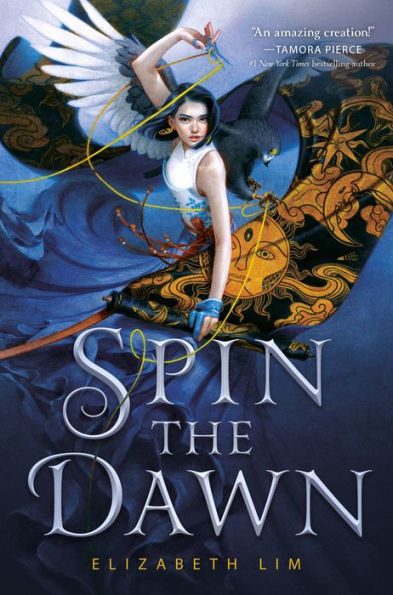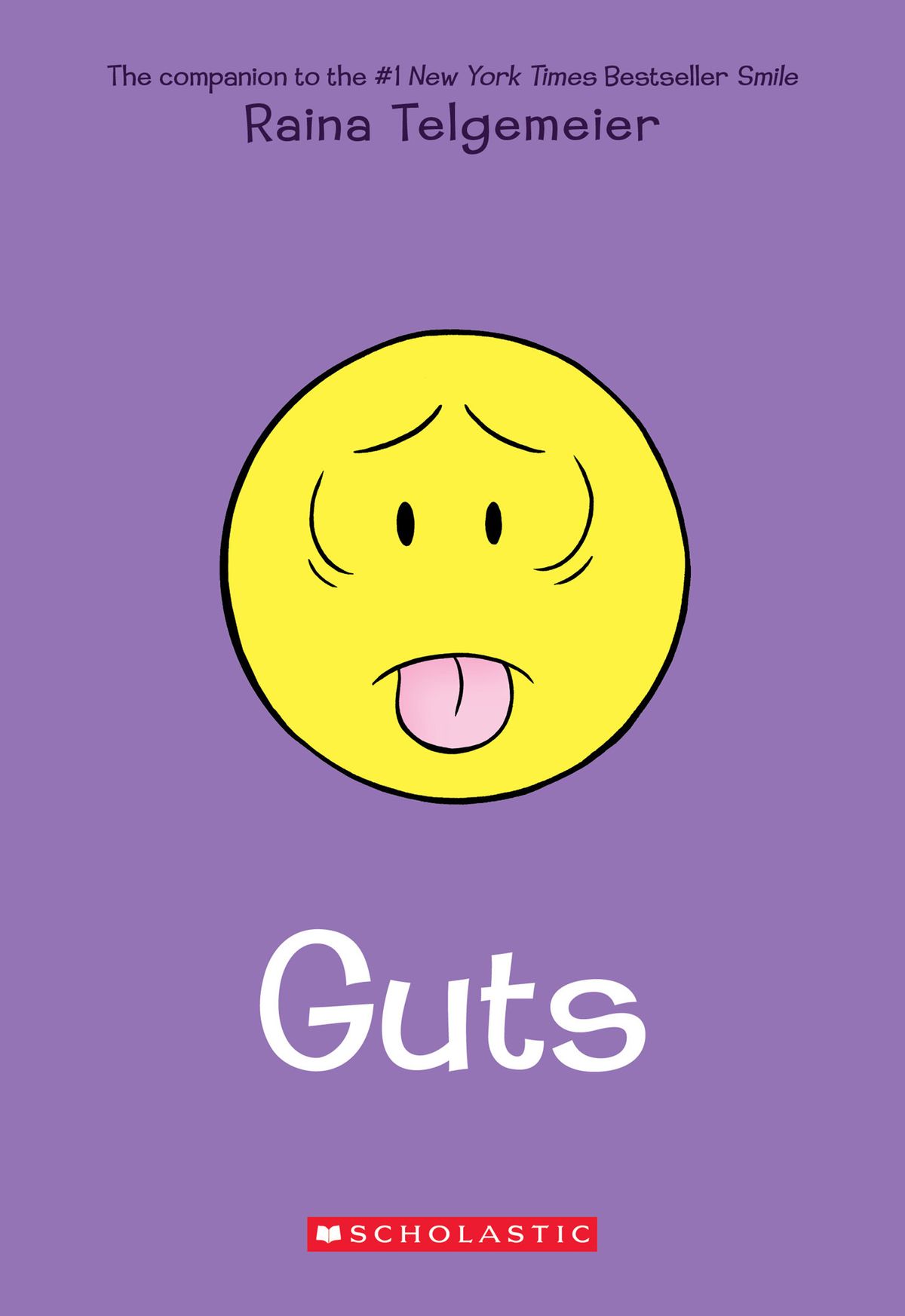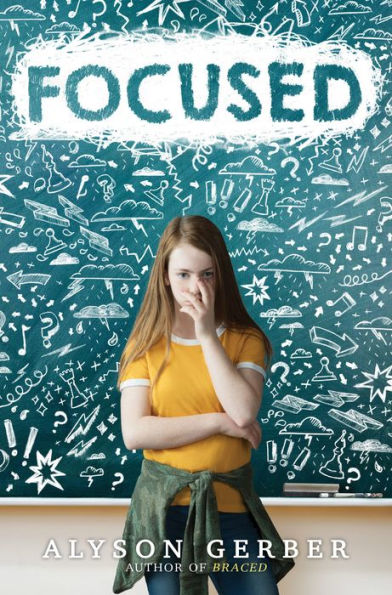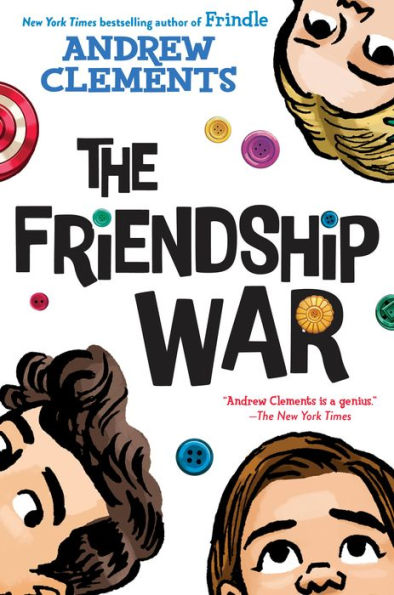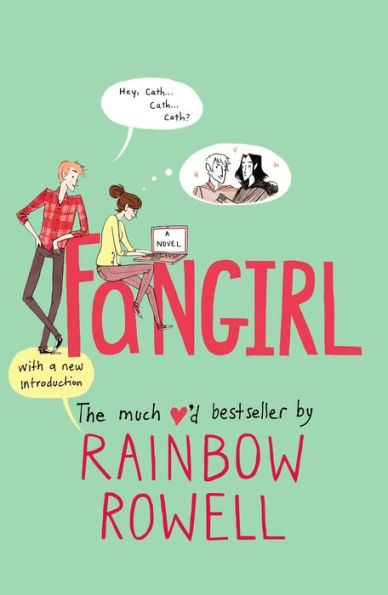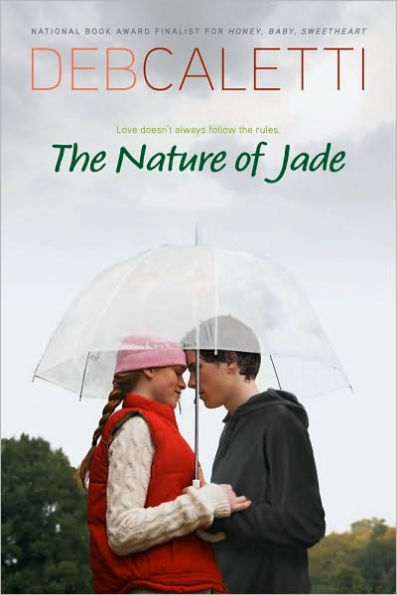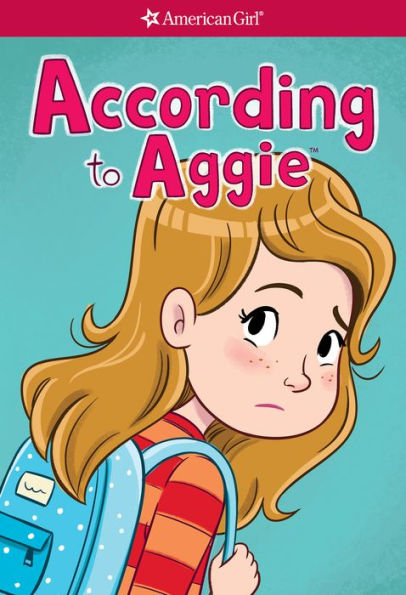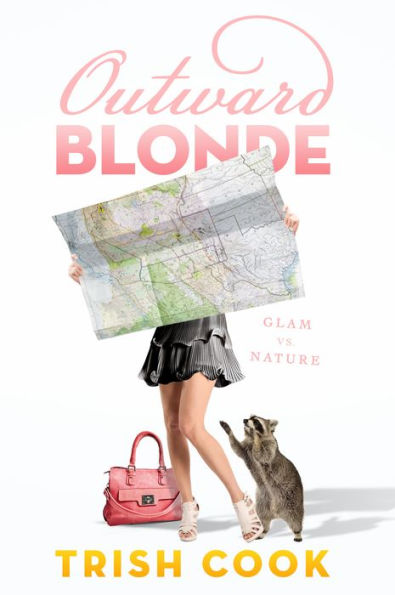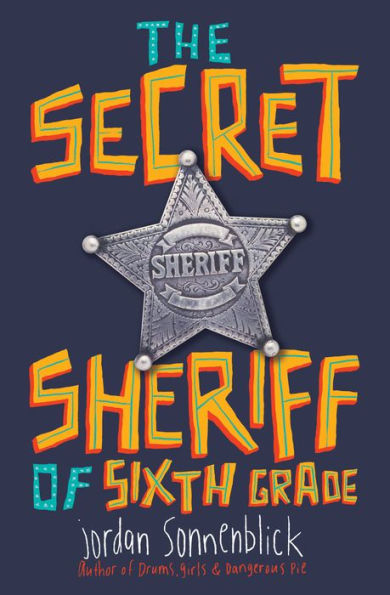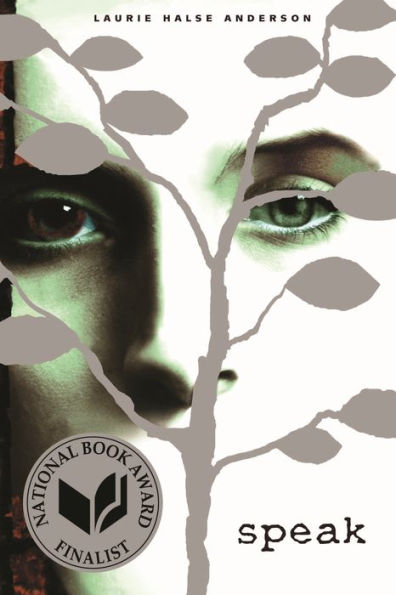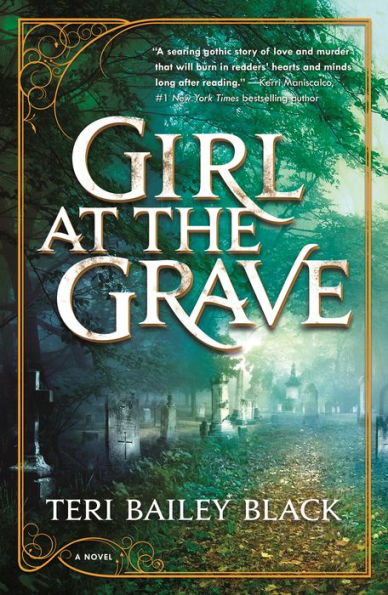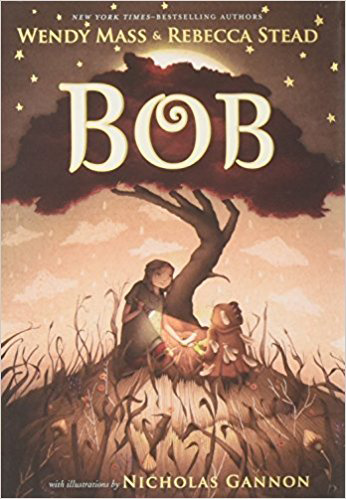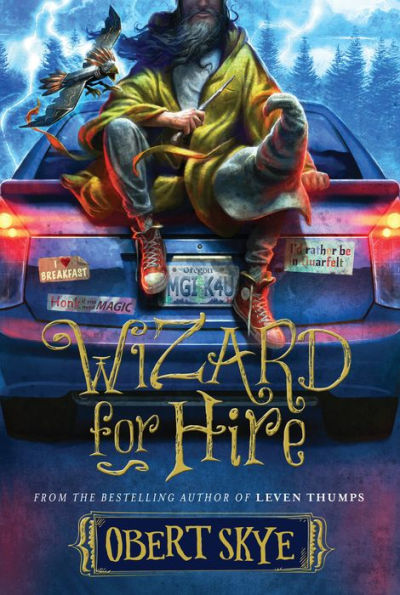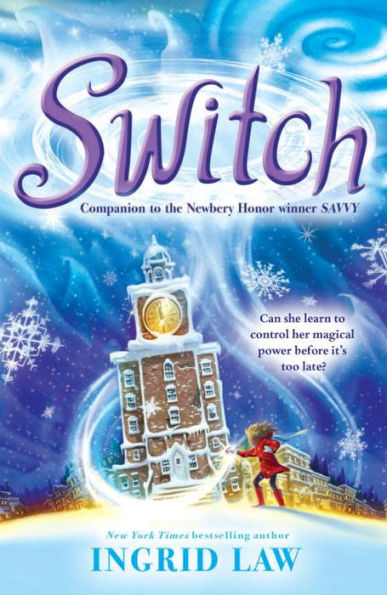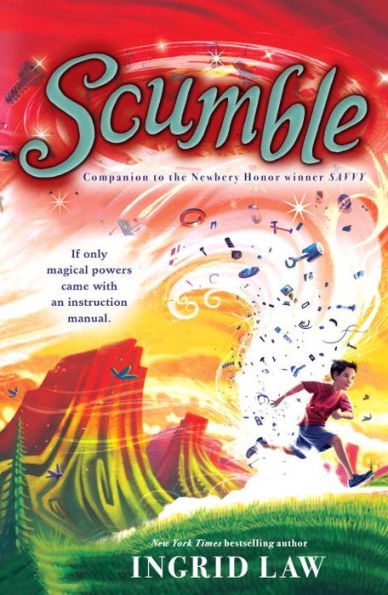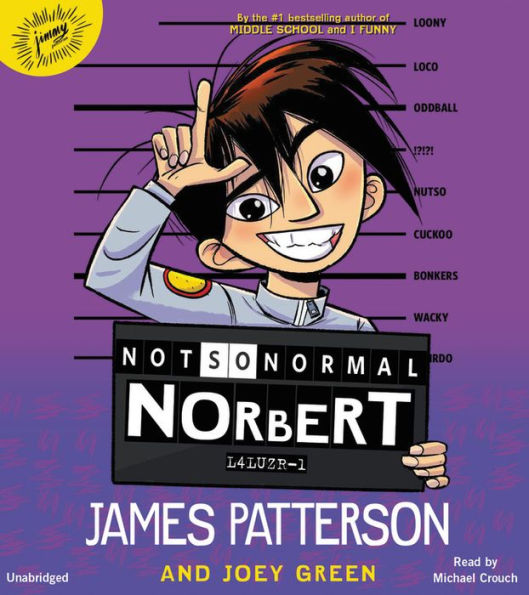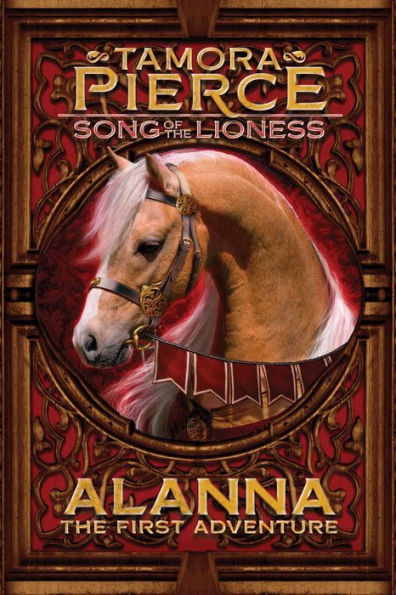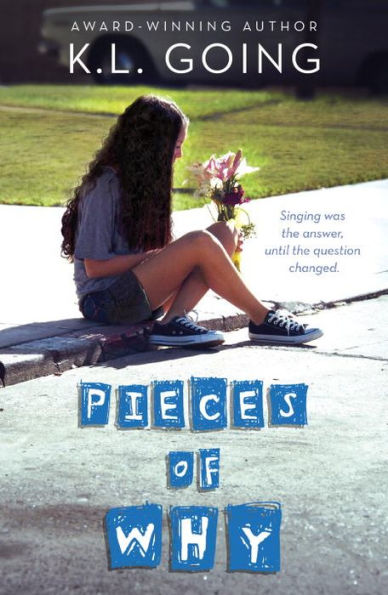Maia loves to sew. She dreams not only of becoming a master tailor but becoming the imperial tailor. However, it’s a far-fetched dream as only boys are allowed to become tailors in A’landi. As her father’s only daughter and youngest child, Maia is expected to be quiet, obedient, and eventually raise a family. After her older brothers die in war and her father becomes too sick to sew, the burden of caring for her family becomes even greater, and her dream of becoming a tailor fades.
Maia cannot think of anything more abhorrent than abandoning her sewing, but she sees no alternative until her father is called upon by the emperor. The emperor is getting married and needs a new imperial tailor to create his betrothed’s wedding gowns. There is to be a competition of the best tailors in the land, and her father is invited to join. Maia’s father is too sick to travel to the capital, so Maia disguises herself as her father’s son and goes in her father’s place. Soon she finds herself competing with tailors who are decades more experienced than herself, who are willing to cheat, and who would possibly even be willing to commit murder in order to become the next imperial tailor.
Spin the Dawn has a lovable, interesting cast of characters that will hook readers. The land of A’landi is foreign, beautiful, and magical. The rich characters, court intrigues, and mysterious Lord Enchanter keep the tailoring competition from becoming cliché. Readers will be delighted when magic becomes a part of Maia’s life and will understand her moral struggle in deciding whether or not to use it.
While Part I of Spin the Dawn is a delightful read focused on the tailoring competition, Part II takes an entirely different track with Maia going on a journey to create three magical dresses for the emperor’s betrothed. The lore behind the dresses is fascinating, but the journey feels rushed and some conflicts are resolved too easily to be believable. Still, the Lord Enchanter accompanies Maia on her quest and their relationship is enchanting to watch. While Part II is weaker than Part I, the delicious dynamic between Maia and the Lord Enchanter will be enough to keep readers reading until the end.
Sexual Content
- When speaking of the emperor, Maia’s brother says, “So you’ve heard how handsome he is from the village girls? Every one of them aspires to become one of the emperor’s concubines.” Maia says, “I have no interest in becoming a concubine.”
- A village boy wants to marry Maia. “I thought with dread of Calu touching me, of bearing his children, of my embroidery frames collecting dust . . . I stifled a shudder.”
- There are rumors that the emperor’s betrothed has a “lover. But it’s all court gossip. No one knows for certain.”
- While pretending to be a boy, Maia had “been wearing at least three layers to help obscure my chest.”
- When Norbu finds out that Maia is a girl disguised as a boy, he “touched my cheek and pressed his thigh against my leg. ‘I always thought you were a pretty boy. Perhaps a little kiss?’ “
- Maia and the Lord Enchanter almost kiss. “He pressed a gentle kiss on the side of my lips, just missing my mouth. His lips were soft, despite the desert’s unrelenting dryness. A shiver flew up and down my spine, even though his breath was warm, and his arm around me even warmer.”
- Maia and the Lord Enchanter kiss several times. “His lips pressed against mine. Gently at first, then with increasing urgency as I started to respond with my own need. His hand was tight on my waist, holding my wobbly knees steady.” Another time, “he tilted my chin and kissed me. Heat flooded me from my lips to my toes, and my heart hammered, its beat rushing and skipping to my head.”
- Maia and the Lord Enchanter sleep together. “He kissed me, exploring my mouth with his tongue, then tantalizing my ears and my neck until I was dizzy and feverish. Finally, when my knees weakened and I couldn’t bear to stand any longer, Edan eased me onto his cloak against the soft, damp earth. Our legs entwined; then we became flesh upon flesh. All of me burned, my blood singing wildly in my ears.”
- When Maia is captured by bandits, one of them says, “Do you know how long it’s been since I’ve felt a woman?” Maia is then rescued.
- Maia and the Lord Enchanter kiss goodbye. “I crushed my mouth against his, wrapping my arms around his neck and my legs around his hips. His kisses moved to my cheeks, my neck, my breasts, back to my lips. Passionate, then tender. Then passionate again, as if we couldn’t make up our minds.”
Violence
- A man breaks Maia’s hand. “Norbu stepped on my wrist, pinning my hand to the ground . . . He was carrying one of the heavy metal pans we used for smoothing our fabrics. I tried to yank my wrist away, but he was too strong. Too quick. He raised the pan high, then brought it crashing down onto my hand. Pain shot up from the tips of my fingers and flooded my brain. I screamed.”
- When it’s discovered that Maia is a girl, she is thrown into a dungeon. The guards “struck me in the ribs and kicked me to my knees so that I landed in a rotten pile of hay, coughing and whimpering.”
- Maia is whipped for lying to the emperor. “The guards tore my tunic and ripped off my chest strips—so fast I’d barely crossed my arms to cover myself when the whip burned into my skin, a stinging line of fire. Blood splattered onto the cold stone floor. . . Each lash bit into me, gashing my back, and I chewed on my lip so hard my mouth grew hot with blood.”
- Maia is chased by wolves, which then turn on each other. “Soon I was forgotten as the wolves fought one another. The sight was gruesome, blood on fur on sand. I buried my face in my hands until the snarls became whimpers, then nothing.”
- Maia stumbles upon an old battlefield. “Broken drums, slashed war banners, mounds of bones—human bones. And bodies . . . Some of the men had frozen to death. I could tell from their ashen faces, tightly drawn blue lips, and curved-in shoulders.”
- Maia and the Lord Enchanters are attacked several times by bandits. Once, the Lord Enchanter “fired three arrows in quick succession. Vachir eluded each shot, but the men behind him weren’t as lucky. Two fell.”
- Maia fights a demon. “I lunged forward and slammed my dagger into his shoulder. He cried out, an anguished scream that made my blood curdle.”
- Maia is attacked by bandits. “I slashed at the one who’d spoken, but I missed his throat and scored his cheek instead. I made a long, jagged gash.”
Drugs and Alcohol
- A fellow tailor “reached into his robes for a flask. He offered it to me, and after I declined, he took a long drink.”
- Maia turns in early one night. In the morning, she discovered “It was a good thing I’d refused to go out with Norbu and the others. After their bath, they’d gone to the local drinking house, where Master Taraha and Master Garad drank themselves into a stupor. Now they were spending the day retching. Even from my table, I could smell it.”
- While traveling, Maia and the Lord Enchanter stay the night with a group of travelers. The travelers pass around a wine gourd after dinner, and Maia accidentally gets drunk. “I was so mortified I simply took another drink. And another. The more I drank, the less it burned my throat . . . Normally I wouldn’t have stared at him so obviously, but the wine had washed away my caution.”
Language
- Variations of the phrase “demon’s breath” are used a few times as profane exclamations.
- A man says a country’s wine “tastes like horse piss.”
- Damn is used a few times. The Lord Enchanter says, “I want to get out of this damned place.”
Supernatural
- Maia “repaired amulets for travelers who asked it of me, though I didn’t believe in magic. Not then.”
- A man says to Maia, “The A’landans are superstitious people. Constantly praying to their dead ancestors. If you believe in spirits and ghosts, I don’t see why you wouldn’t believe in magic.”
- Maia meets the emperor’s Lord Enchanter. Maia “knew little of enchanters, lord or not, other than that they were rare and drifted from land to land.” Longhai tells Maia, “The Lord Enchanter advises Emperor Khanujin on many matters. He served the emperor’s father for years, yet he hasn’t aged a day!” Maia later finds out that the Lord Enchanter can transform into a hawk, which is his spirit form. “Feathers sprouted over his skin and spine. A pair of wings erupted from his shoulders and fanned down across his arms.”
- Maia discovers that the scissors passed down from her grandmother are magical. “The scissors glided over the shawl, possessed in a way that my hands could only follow. Invisible threads repaired the cloth’s damage, giving it life anew, and colors from my paint pots soaked into the silk . . . Impossible as it appeared, the scissors not only cut but embroidered . . . My hand wouldn’t let go of the scissors, no matter how much I tried to pry them away, no matter how much I wanted to put them down. I was under a spell, drunk with their power.”
- In Part II of Spin the Dawn, Maia is forced to go on a journey with the Lord Enchanter. On this journey, magic becomes a part of daily life. From enchanted carpets that fly, using magic to heal, and a magical tablecloth that creates an entire meal from nothing, Maia’s journey is filled with magic.
- Maia is given an impossible task by the emperor’s betrothed. She is told to make a dress out of the laughter of the sun, the tears of the moon, and the blood of the stars. These three dresses are called Amana’s dresses, and it is said that whoever possesses them will receive a wish from the goddess Amana herself.
- Maia goes to an island filled with ghosts. While there she meets a demon—a creature who used to be a sorcerer but was cursed when he killed his master. The demon steals a piece of Maia’s soul, which means he can follow her anywhere.
- When Maia finishes the dresses, the goddess Amana speaks to her. Amana’s statue in the temple glows and a “low and powerful, yet kind” voice says, “Ask me your heart’s greatest desire, Maia. And I shall grant it.”
Spiritual Content
- It is mentioned in passing that “Toward the end of every month, [Maia] helped the women who were preparing their gifts for the dead—usually paper clothing, which was tricky to sew—to burn before the prayer shrines in honor of their ancestors.”
- Maia lives in a land with many gods. The gods are often mentioned in passing. A tailor says, “The gods are listening to us, masters. Do you want to invoke their wrath?” The emperor’s betrothed says, “The imperial tailor is a master chosen by the gods. I expect him to be able to work with any material, whether it be glass or silk.” Another time, a man says, “The gods watch over me, I am very grateful.”
- Two gods are more developed and become part of the plot. The first is the goddess Amana, whose magical dresses Maia is tasked with sewing. People often say, “Amana be with you.” The other is the sun god, who Maia indirectly encounters during her search for the laughter of the sun. While in the desert, the Lord Enchanter says, “The sun is worshipped in many lands. He’s a brilliant, brutal deity. And now we are in the heart of his kingdom.”
- The Lord Enchanter says, “Pigs are smarter than people give them credit for! Where I grew up, we almost worshipped them.” Maia “couldn’t tell if he was joking.”
- Maia confesses that she doesn’t “even trust the gods. Not to listen, anyway. My father prays to Amana every morning, every night. . . But Finlei and Sendo died.”
- The Lord Enchanter grew up in a monastery. “The monks I grew up with were different from the ones here. Not generous and kind. And the gods we worshiped were harsh and unforgiving.”
- Maia asks a monk, “What if there are no gods? What if there is only magic, only enchanters and demons and ghosts?” The monk replies, “You must keep your faith . . . The gods watch over us, but unlike the spirits of this realm, they do not interfere in our lives. Not unless we anger them greatly, or impress them.”
by Morgan Lynn
